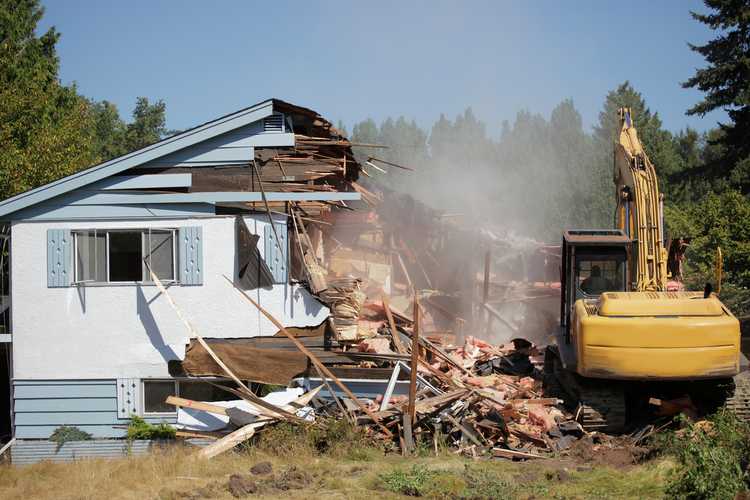Owning property can leave you dealing with any number of perils, and potential problems you face may not be the result of a fire, a theft, or a natural disaster. Liability can be a major concern for homeowners as well, and sometimes even property you don't personally own can leave you vulnerable.
While a homeowners insurance policy intends to protect the building you live in and its contents, including your personal possessions, HOA insurance can provide additional protection for the common areas owned collectively by other homes or condominiums in your community.
This type of insurance is not as popular as homeowners insurance, yet it can come in handy — and potentially even save your finances — if an individual is injured in your neighborhood's common community space. HOA insurance can also pay to repair damage caused to community property, even when the damage was caused by unknown forces or a party that doesn't reside in your neighborhood.
What is an HOA?
If you live in a neighborhood with other homes, there's a good chance your community has a homeowners association, or an HOA. While HOAs can operate in many different ways, homeowners associations are typically made up of non-paid boards of local residents. Some HOAs are also overseen by a third party management company who takes care of some of the regular activities of the HOA, such as collecting HOA dues and distributing community funds toward bills and other expenses.
Homeowners associations exist to make sure neighborhoods are running smoothly, and that any existing rules are being followed and enforced. Other jobs HOAs take on can vary buy may include the following:
- Setting up maintenance work for shared community amenities, such as pools and parks
- Collecting homeowners association dues
- Raising dues as required
- Budgeting community funds and allocating money toward appropriate expenses
- Setting the terms for special assessments
- Providing security (if required)
- Paying utility and water bills for community buildings
- Repairing and upgrading shared community amenities
These are just some of the responsibilities HOAs typically take on, although there may be others depending on the specifics of the community.
How Does HOA Insurance Work?
HOA insurance is a type of commercial property insurance that provides coverage for components of your property not covered by other insurance, such as the exterior of your condo building, your community park, a community pool or tennis courts.
HOA Insurance works in conjunction with other insurance you have purchased to protect your building and your personal property. This means that HOA insurance is purchased in addition to other policies you have, such as your homeowners insurance or condo insurance policy.
Generally speaking, however, HOA insurance is paid for out of the HOA dues you pay to your
homeowners association. This means that individual homeowners and condo owners need to verify their HOA has sufficient insurance coverage, but they don't need to purchase a policy themselves.
What Does an HOA Master Policy Cover?
An HOA Master Policy provides coverage for common areas in your neighborhood, as well as liability coverage. In the case of condominium communities, damage to the outside structure of buildings is included. However, homeowners are charged with purchasing their own condo insurance or homeowners insurance coverage that protects the interior of their home and everything they own.
Almost more important than anything else is the liability covered included in HOA insurance policies. If someone is hurt or even killed on community property, liability coverage can protect community residents from catastrophic financial losses.
Some states have a minimum coverage requirement for liability, although many communities with an HOA opt to purchase more. HOA boards may also choose to buy umbrella insurance coverage that can kick in to pay for additional financial protection or excess claims beyond normal policy limits.
HOA Insurance vs. Condo Insurance
There are a range of differences between HOA insurance and condo insurance, although some can vary depending on the specifics of your home and your community. Factors that make these two types of insurance different include the following:
- HOA insurance is typically purchased by the homeowners association and paid for with HOA dues, whereas condo insurance is purchased separately by the homeowner. If you have a mortgage on your condominium, your mortgage company will require condo insurance.
- HOA insurance intends to protect you from damage or liability claims in public areas, whereas condo insurance intends to protect you from damage or liability claims in your own home.
- Where HOA insurance typically protects the exterior of your building, condo insurance protects your personal belongings such as furniture, jewelry, appliances, electronics, and clothing.
While HOA insurance provides coverage for common areas in your neighborhood, condo insurance typically includes the following components:
- Coverage for your dwelling
- Coverage for loss of use
- Liability coverage
- Coverage for medical payments
- Loss assessment coverage
HOA Insurance vs. Homeowners Insurance
Whether your single family home resides in a neighborhood with an HOA or not, the details of your homeowners insurance shouldn't vary too much. Just keep in mind that HOA insurance won't protect the exterior of your home if you don't live in a condominium. As such, your homeowners insurance policy will need to be sufficient to protect your home and your entire property inside and out.
The same types of coverage are typically included in a homeowners insurance policy, such as:
- Coverage for your dwelling
- Coverage for loss of use
- Liability coverage
- Coverage for medical payments
- Loss assessment coverage
Add-on coverage you can buy within a homeowners insurance policy can include earthquake coverage, flood insurance, coverage for sewer backups, additional coverage for a home-based business, and more. Keep in mind that additional riders you can add to your homeowners insurance policy may or may not be necessary based on the details of your home and property.
Frequently Asked Questions (FAQ)
Who pays HOA insurance deductible?
While it's clear HOA insurance costs are paid by the homeowners association out of HOA dues paid by members, it's less clear who is ultimately responsible for paying an HOA insurance deductible. In some cases, the HOA may pay the deductible out of community funds when filing a claim. In other cases, community members may be asked to pay for part or all of the deductible.
Do HOA fees cover homeowners insurance?
Fees you pay to your HOA typically cover the cost of HOA insurance premiums as well as other costs associated with running your neighborhood. However, homeowners are required to pay for their own homeowners insurance policy separately.
Is insurance included in HOA fees?
Typically, HOA insurance is paid by the homeowners association out of dues paid by members. However, homeowners and condo owners pay for their own separate homeowners insurance and condo insurance policies that are kept separately from the community HOA insurance policy.
Are HOA fees a tax write off?
HOA fees can be "written off" as a business expense when the home is being used as a rental property. However, HOA fees paid on owner-occupied homes are not eligible for a tax deduction of any kind.



